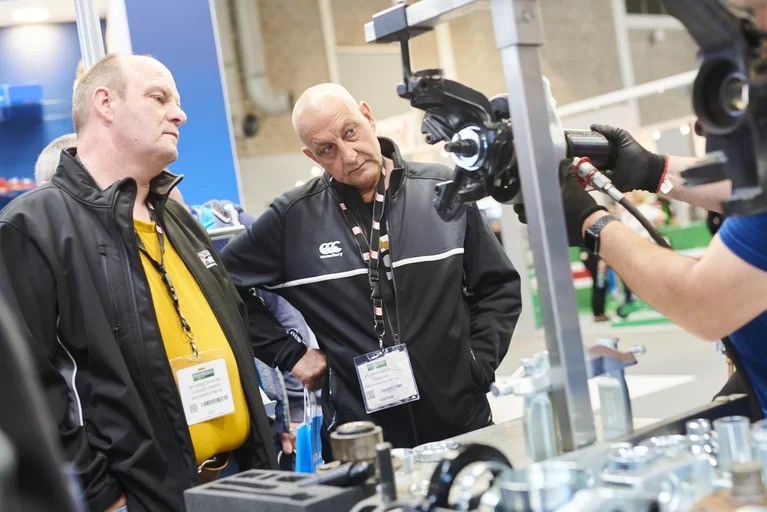 What could cause a firm to be accused of passing off goods as genuine? The answer, says lawyer Teresa Hitchcock, can be found in common law.
What could cause a firm to be accused of passing off goods as genuine? The answer, says lawyer Teresa Hitchcock, can be found in common law.
Passing off is when a person or company supplies goods that they hold out as those of a particular person or company, when they are in fact somebody else’s.
In passing off cases, retailers may unwittingly be marketing goods that they believe to be genuine, but in the process innocently mislead the public. So what is the legal position of a retailer selling products which it believes to be genuine, but which are in fact counterfeit? How much evidence does a retailer need to gather from its suppliers, to satisfy itself that products are genuine, and what might the consequences be if it fails to do so?
The test for passing off

Passing off is a common law action that means it has arisen under case law rather than legislation. It enables a person to obtain protection similar to that provided by a trademark. There are essentially three elements to a passing-off action, as set out by a case involving Jif Lemon:
- The injured person must have goodwill in the goods or services it is seeking to protect.
- The defendant has made a misrepresentation, i.e. a false statement about a product.
- The injured party must have suffered a loss as a result of his or her reliance on the misrepresentation.
For retailers, it is particularly important to recognise that no intention to mislead the public is required. Firms therefore need to ensure that they are fully aware of the origin of their goods so that they can provide this information to customers. This applies equally to sales in store and online. Using any literature, naming, mark or abbreviation that may confuse the consumer as the origin of the goods could amount to a misrepresentation and open the company up to a passing-off action.
The person bringing the passing off action will also need to demonstrate that there is goodwill in the products in question in order for it to be protectable.
The level of acceptability
In a case that might resonate with accessory shop retailers (Star Cycle v Frankenbergs), the claimant sold bicycles under its name “Star Cycle”, and it claimed that the defendant’s use of “Midland Star” for a range of bicycles it manufactured infringed the claimant’s rights. However the Midland Star bicycles were not marked with that name, which was used only in price lists and trade advertisements provided to traders. Since the public never saw the “Midland Star” designation and neither did retailers, they could not have been deceived and therefore there was no passing-off action.
Images on the products
Another recent, and high-profile case (Fenty v Arcadia Group Brands Ltd, or Rihanna v Topshop as it is popularly known), has also highlighted the need for retailers to check celebrity business activities to ensure that the manufacturers of products that comprise celebrity endorsements have arisen out of a genuine deal with a celebrity. Topshop recently lost a court case in which Rihanna successfully argued that the use of her image on T-shirts sold by the retailers misrepresented her as endorsing them, and as such constituted a case of passing off. This is in stark contrast to the general position that celebrities do not have a right to control the reproduction of their image.
The decision was made particularly in view of Topshop’s previous collaborations with celebrities, which meant members of the public were more likely to believe that Rihanna had authorised the products, and was similar to an image used on one of Rihanna’s albums. The company obtained a licence from a photographer who captured the image, but not from Rihanna and this infringed her goodwill rights, business activities in fashion as well as her music. This is said to have caused her to lose out on sales to her merchandising business and loss of control over her reputation in the fashion world.
Retailers should also be aware that, under certain circumstances, a passing-off action for company names and internet domain names could also be brought.
Financial consequences
The claimant in a passing off action may claim a number of remedies including an inquiry to establish loss; damages which will be at least nominal, i.e. small damages awarded to show the loss or harm suffered was technical rather than actual; an account of profits for any deceptive products that have been sold; an order for the delivery up or destruction of the infringing articles; and/or an injunction, to, for example, prevent the goods from being sold.
But there are some defences available, including arguments that the claimant’s mark is not distinctive – that it is merely descriptive or has become generic. That said, as we’ve already seen earlier, innocent misrepresentation is not a defence. The lesson is that to stay out of trouble a retailer needs to be satisfied that the source of its products is genuine.










Go to comments